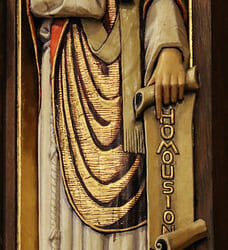The invasion served as proof of concept that Reagan was a tough anti-Communist with the foreign policy chops to guide the US back into a global leadership position.
Operation Urgent Fury, more commonly known as the invasion of Grenada, was a domestically popular yet internationally controversial military intervention on the small Caribbean island of Grenada, removing a Marxist government from power and installing a pro-American administration. The incident has come to be synonymous with a lopsided engagement, like a David and Goliath situation—but where Goliath wins.
The United States landed with 7,000 troops, plus a handful of Caribbean allies, and secured the island in only a few days, from October 25th to October 29th, 1983. The incident marked the first major US military operation since the end of the Vietnam War—arguably ending the post-Vietnam doldrums that characterized the Carter era, and harkening the jingoistic 1980s of the Reagan era. In retrospect, Grenada seems to have set the tone for a newer, more interventionist foreign policy that has seen the US in near constant engagement around the globe—in Panama, the Persian Gulf, Somalia, Kosovo, Iraq, and Afghanistan.
A Military Coup in Grenada Prompted the Invasion
Less than one week before the United States decided to invade, Grenadian Prime Minister Maurice Bishop was overthrown and executed by a hardline faction within his own party. A military junta took power, imposed a 24-hour shoot-on-sight curfew, and declared martial law. The situation on the ground prompted American concerns for multiple reasons. Ostensibly, the main reason was the safety of American citizens. About 600 US citizens, mostly medical students, were living on the island at the time of Bishop’s execution. Washington claimed that the circumstances presented the American students with an urgent and dangerous situation. With that said, the students on the whole did not report a threat to their safety, suggesting that the Reagan administration may have held deeper concerns about the geo-strategic implications of Grenada. At the time, Grenada’s left-wing government had strong relations with both Cuba and the Soviet Union. Reagan, a zealous anti-Communist, perhaps saw Grenada’s large airstrip (under construction with Cuban assistance) as a potential military base for the Soviets and Cubans to project power throughout the Caribbean—an unacceptable premise.
Reagan also came under international pressure to restore order on the island. The Organization of Eastern Caribbean States (OECS), Barbados, and Jamaica all formally requested Reagan’s intervention, fearing that chaos in Grenada could have a destabilizing influence on the entire region—and serve as a foothold for further Communist expansion in the Western hemisphere.
Reagan’s Invasion of Grenada Restored Confidence in the Military
On October 25th, 7,000 US troops—composed of Army Rangers, Delta Force units, the 82nd Airborne, the Marine Corps, Navy SEALs, and Air Force and Navy support units—invaded Grenada, defended by roughly 1,500 Grenadine and 700 Cuban troops. The American’s key objectives were to rescue American citizens and secure key infrastructures such as the Point Salines International Airport, radio stations, and military barracks.
The Americans landed under cover of darkness, with poor intelligence. SEALs landing on the beach lost several men while trying to provide reconnaissance. Meanwhile, Army Rangers parachuted into Point Salines Airport under enemy fire but were successful in gaining control. Urban fighting broke out, with the Americans facing tougher resistance than expected—particularly from the Cuban troops, which were occasionally able to mount an effective defense.
But the quality and quantity of troops involved in the engagement were overwhelming in favor of the Americans, and victory was virtually certain. Sure enough, by October 29th, the resistance had crumbled. Nineteen American troops were killed; while Grenada and Cuba lost 45 and 25 respectively. A provisional government was installed with American approval.
The invasion was popular within the United States, serving as proof of concept that Reagan was a tough anti-Communist with the foreign policy chops to guide the US back into a global leadership position. Abroad, the invasion was less popular, drawing condemnation from the United Nations and the British—Grenada’s former owners—who were not notified in advance.
About the Author: Harrison Kass
Harrison Kass is a defense and national security writer with over 1,000 total pieces on issues involving global affairs. An attorney, pilot, guitarist, and minor pro hockey player, Harrison joined the US Air Force as a Pilot Trainee but was medically discharged. Harrison holds a BA from Lake Forest College, a JD from the University of Oregon, and an MA from New York University. Harrison listens to Dokken.
Image: Wikimedia Commons.


















